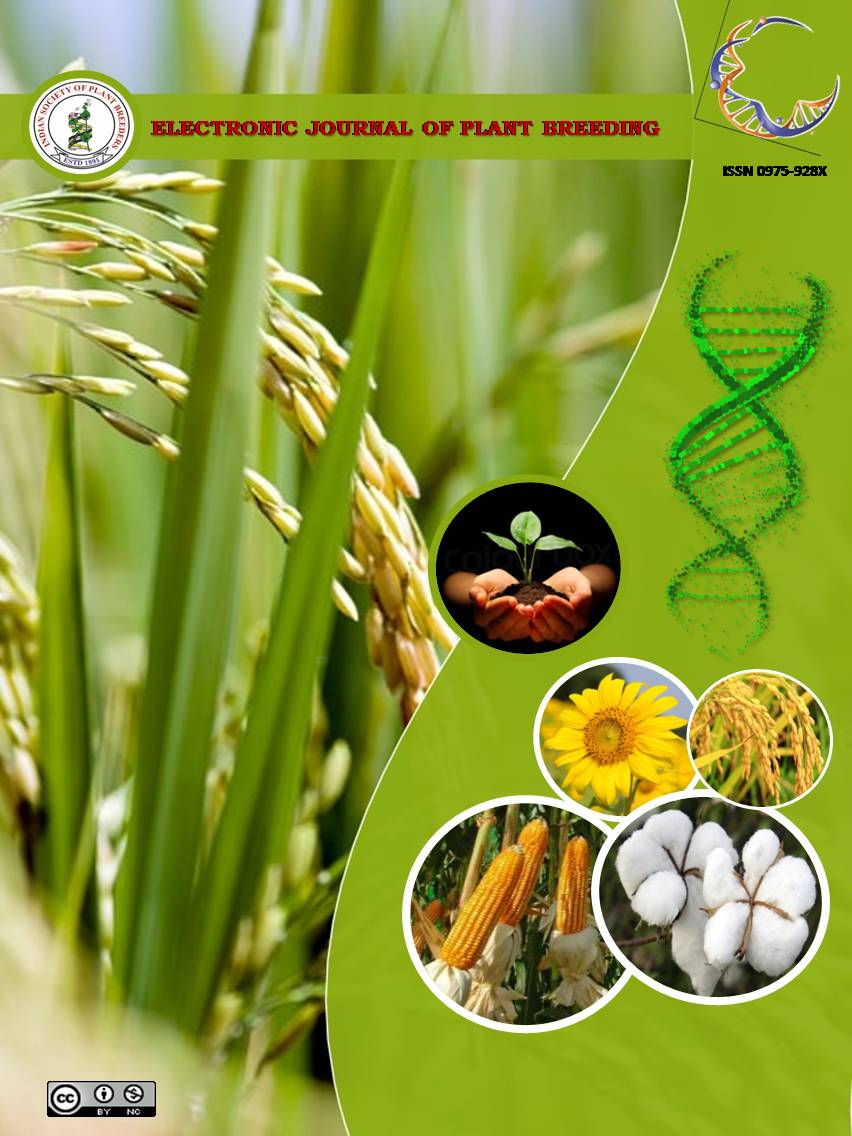Correlation studies in elite lines of upland cotton (Gossypium hirsutum L.)
Abstract
Yield is a complex character which is contributed by a large number of components. Therefore, to determinethe relative importance of the component characters and to initiate an effective selection programme,correlation studies were done. In cotton, seed cotton yield is an important and of economically valuedcharacter. Hence, the seed cotton yield per plant was taken as dependent character for correlation studiesin this investigation. Seed cotton yield expressed a significant positive association with the plant height(0.2458 and 0.4348), the number of monopods per plant (0.2821 and 5.9365), the number of bolls per plant(0.8606 and 0.8558), boll weight per boll (0.5077 and 0.5137), lint index (0.3382 and 0.4409), ginning outturn (0.2794 and 0.4566), seed index (0.1826 and 0.2117),the number of seeds per locule (0.1826) and0.2117), at both genotypic and phenotypic levels. Number of locules per boll (1.5872) showed a significantcorrelation at the genotypic level with seed cotton yield. A significant negative correlation was observed withdays to 50% flowering (-0.2222 and -0.2931) at both levels

